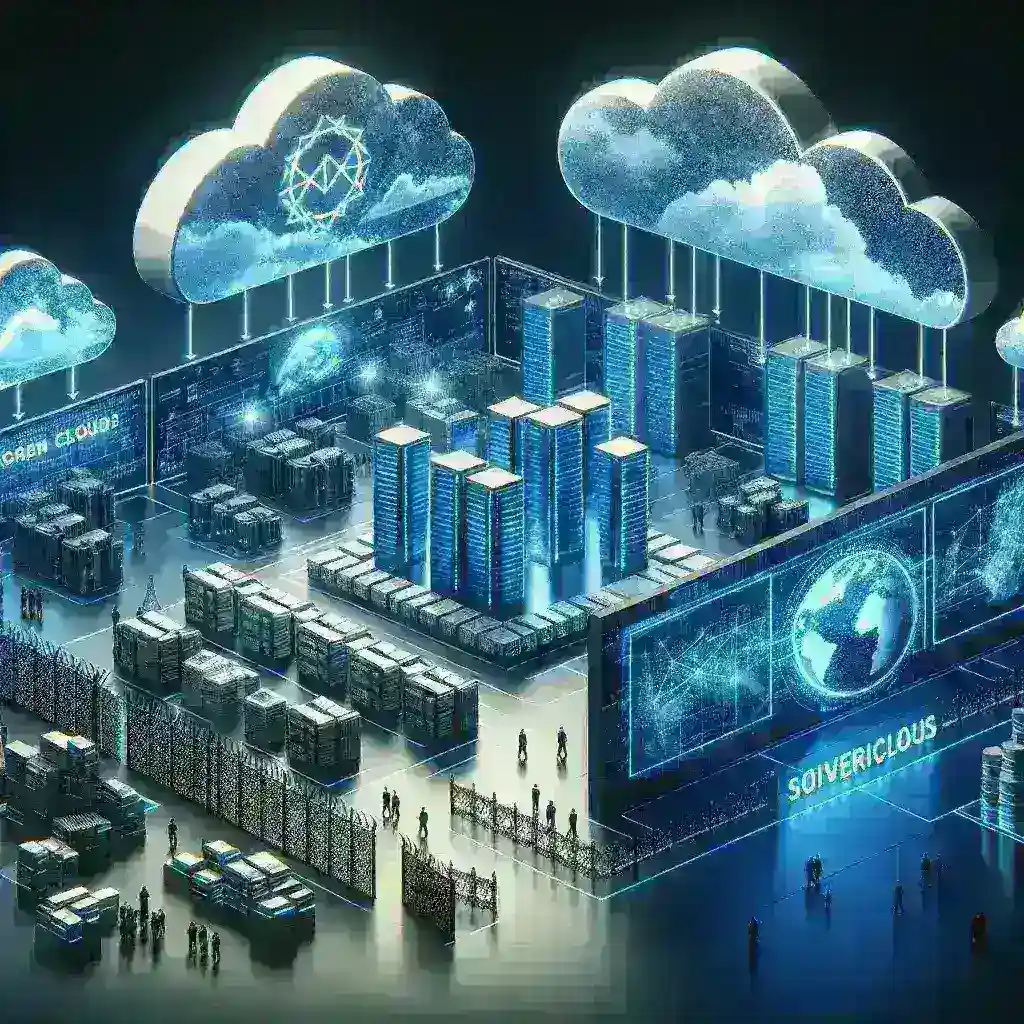Introduction
In an increasingly interconnected world, hyperscalers—massive cloud service providers such as Amazon Web Services, Microsoft Azure, and Google Cloud—face significant challenges stemming from geopolitical tensions. These challenges necessitate innovative solutions to ensure compliance with local regulations while maintaining operational efficiency. One of the emerging strategies to address these geopolitical restrictions is the implementation of sovereign clouds. This article delves into how hyperscalers manage geopolitical restrictions through sovereign cloud solutions, exploring their benefits, challenges, and future implications.
Understanding Hyperscalers and Sovereign Clouds
Before diving into the strategies employed by hyperscalers, it’s crucial to understand what hyperscalers and sovereign clouds are.
What are Hyperscalers?
Hyperscalers are cloud service providers that offer scalable and flexible cloud computing solutions to businesses and consumers. They operate massive data centers and utilize advanced technologies to deliver services globally. Hyperscalers are known for their ability to accommodate rapid growth and high demand, making them vital players in the cloud industry.
What are Sovereign Clouds?
Sovereign clouds are cloud computing environments that are designed to operate within specific national or regional jurisdictions. These clouds ensure that data is stored, processed, and managed according to local laws and regulations. By utilizing sovereign cloud solutions, organizations can maintain data sovereignty, which is crucial for compliance and security.
The Need for Sovereign Clouds
The rise of data privacy regulations, such as the General Data Protection Regulation (GDPR) in Europe, has created a pressing need for organizations to ensure that their data practices align with local laws. Additionally, geopolitical tensions can lead to restrictions on cross-border data transfers, forcing businesses to rethink their cloud strategies.
Geopolitical Risks
- Trade Sanctions: Governments may impose trade sanctions on certain countries, impacting the ability of hyperscalers to operate in those regions.
- Data Localization Laws: Some countries require that data be stored within their borders, creating challenges for global cloud operations.
- Cybersecurity Threats: Geopolitical tensions can heighten the risk of cyberattacks, making data security a top priority for hyperscalers.
Strategies Employed by Hyperscalers
To navigate these complexities, hyperscalers adopt various strategies to implement sovereign clouds and ensure compliance with geopolitical restrictions.
1. Local Data Centers
One of the primary solutions hyperscalers implement is establishing local data centers within the jurisdictions they serve. By doing so, they can ensure that data is stored and processed in compliance with local laws. For example, Microsoft has invested heavily in building data centers in various countries to meet data residency requirements.
2. Partnerships with Local Providers
Hyperscalers often form partnerships with local cloud providers to enhance their compliance with regional regulations. These partnerships allow hyperscalers to leverage local expertise and infrastructure, facilitating smoother operations. For instance, Google Cloud has partnered with local telecom companies in specific regions to provide effective cloud solutions while adhering to local laws.
3. Compliance Frameworks
Developing comprehensive compliance frameworks tailored to specific regions is crucial for hyperscalers. These frameworks outline how data will be managed, ensuring adherence to local regulations. AWS, for example, offers a range of compliance certifications to help customers navigate regulatory requirements.
4. Enhanced Security Measures
With increased geopolitical risks, hyperscalers invest in robust security measures to protect data stored in sovereign clouds. This includes advanced encryption techniques, access controls, and continuous monitoring systems to mitigate potential cyber threats.
5. Advocacy and Collaboration
Hyperscalers engage with governments and regulatory bodies to advocate for fair data policies and collaborate on creating frameworks that support innovation while ensuring compliance. By participating in dialogues with policymakers, hyperscalers can influence regulations that impact their operations.
Benefits of Sovereign Clouds
Implementing sovereign clouds offers numerous benefits for hyperscalers and their clients.
1. Improved Data Security
Sovereign clouds enhance data security by ensuring that sensitive information remains within the jurisdiction, reducing the risk of unauthorized access and data breaches.
2. Compliance with Local Regulations
By utilizing sovereign clouds, organizations can ensure compliance with local data protection laws, avoiding hefty fines and legal repercussions.
3. Increased Customer Trust
Organizations leveraging sovereign cloud solutions can build trust with their customers by demonstrating a commitment to data privacy and security.
Challenges of Sovereign Clouds
Despite the benefits, hyperscalers face challenges when implementing sovereign clouds.
1. High Operational Costs
Establishing and maintaining local data centers can be costly, impacting the overall profitability of hyperscalers.
2. Complexity of Compliance
Navigating complex and ever-changing regulations can be challenging, requiring hyperscalers to stay informed and adapt continuously.
3. Limited Scalability
Sovereign clouds may not offer the same scalability as global cloud solutions, potentially limiting the growth opportunities for businesses.
The Future of Sovereign Clouds
As geopolitical tensions continue to shape the global landscape, the demand for sovereign clouds is expected to grow. Hyperscalers will likely invest further in local data centers and compliance measures to adapt to evolving regulations.
Predictions for the Coming Years
- Increased investment in local data centers and infrastructure.
- Stronger collaborations with local providers and governments.
- Development of advanced security protocols tailored to sovereign clouds.
Conclusion
In conclusion, hyperscalers are adopting innovative strategies to navigate geopolitical restrictions through the implementation of sovereign clouds. By enhancing data security, ensuring compliance, and building customer trust, they are positioning themselves as leaders in the cloud computing landscape. As geopolitical dynamics continue to evolve, the role of sovereign clouds will likely become even more critical in the coming years.

